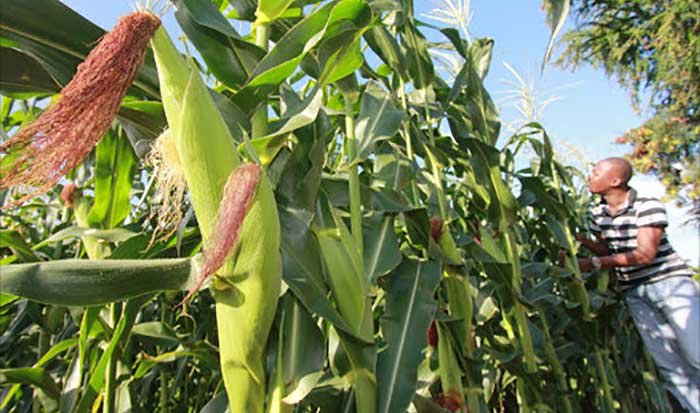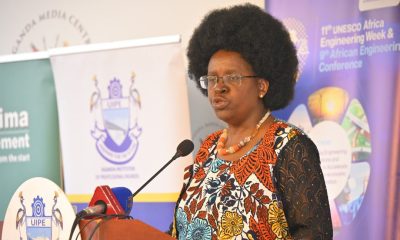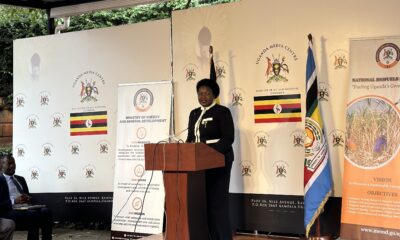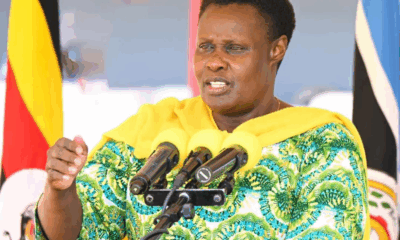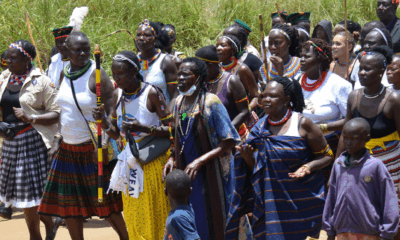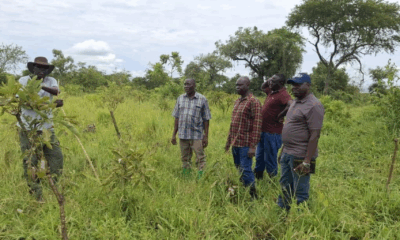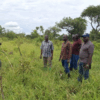News
Kenya lifts ban on GM maize & feeds; Implications for Uganda
The Kenyan government recently lifted a ten-year ban on the importation of genetically modified maize and animal feeds as one of the measures to address the runaway food inflation in the country.
The government said in a cabinet briefing released on October 3, 2022, noting that: “As part of the medium to long term responses to the ongoing drought and as a progressive step towards significantly redefining agriculture in Kenya by adopting crops that are resistant to pests and disease, Cabinet also considered various expert and technical reports of the Kenya’s National Biosafety Authority (NBA), world Health Organisation (WHO) the Food and Agriculture Organisation, the United States of America’s Food and Drug Administration (FDA) and the European Food and Safety Authority (EFSA)
“In accordance with the recommendation of the Task Force to Review Matters Relating to Genetically Modified Foods and Food Safety, and in fidelity with the guidelines of the National Biosafety Authority on all applicable international treaties including the Cartagena Protocol on Biosafety (CPB) Cabinet vacated its earlier decision on 8th November 2012 prohibiting the Open cultivation of genetically modified crops and the importation of food crops and animal feeds produced through biotechnology innovations, effectively lifting the ban on Genetically Modified Crops. By dint of the executive action open cultivation and importation of White (GMO) Maize is now authorized.”
The move is seen by observers as a fulfillment of a campaign pledge by the new government of President William Ruto, himself a farmer and businessman, towards addressing the biting food crisis in the country.
But the decision will undoubtedly impact Uganda because of the close trading relationship between the two countries, particularly surrounding the maize trade.
According to the Uganda Bureau of Statistics report on formal and informal trade in the region, informal maize trade with Kenya accounted for the largest proportion of Uganda’s US$97M revenue earnings.
Lately, Kenyan traders have extended their networks deep into Uganda’s main maize farming regions such as Masindi-Kiryandongo-Hoima region, Sebei region and the central districts of Mubende-Kyegegwa –Kassanda.
There are worries that if Kenya gets an alternative source of food for humans as well as feed for its animals and poultry, Uganda will lose her lucrative maize market, that was boosted by the ban on imports of GMO maize.
The ministry of health of Kenya banned the importation of GM-maize in 2012 following a publication by a French researcher called Seralini, who claimed that rats fed on GM food developed tumors. The paper by Seralini was later discredited and withdrawn because the rats which he claimed developed tumors, developed tumors regardless of the food they ate.
Isaac Ongu, the Executive Director of the Science Foundation for Livelihoods and Development (SciFODE), traces the origins of Kenya’s GMO maize ban, while at the same time attempts to forecast the likely implications of Kenya’s move on Uganda.
Ongu told The Sunrise that: “The decision by President Ruto to rescind the ban, has been positively received even beyond Kenya because that decision that was made in 2012 brought a lot of challenges especially regarding humanitarian aid that was destined to Kenya.”
He adds: “This decision by Ruto comes at a time when Kenya’s GMO crops have been released for cultivation. For example, there is Cotton, Maize and Cassava which have been proven safe for the environment.
“Lifting of the ban means that Kenya will open her borders to the importation of GMO maize from countries such as South Africa or even the US and Brazil, where maize and soybean are cheap.
“As you may be aware, the production of GMO crops is a bit cheaper because the main constraints such as pests and weeds, that affect the growing of these crops are minimized in GM crops.”
Adverse effects
Ongu argues that while Kenya may benefit by getting cheaper maize and feed, it will likely adversely affect Uganda.
He says: “This lifting of the ban means that Kenya will have alternative sources of maize and that Uganda’s maize may not be as competitive any more. The same applies to the cost of feeds. We are all aware that Ugandans have been supplying Kenya with Poultry products. That could also change because the cost of producing poultry products will likely get cheaper compared to their Ugandan counterparts.“
“You may also remember that Uganda considered importing eggs from Brazil because the South American country produces maize and soybean much more cheaply due to its use of GMO seeds as well as due to high levels of mechanization and large scale operations.
Ramathan Kayiwa, a prominent Mubende-based trader who sells maize to Kenyan traders from the border market of Busia, is worried that if Kenya’s government opens its borders to imports from others countries for food and animal feed, it would hurt Ugandan maize market especially since Kenya is Uganda’s biggest maize market.
“Kenya was our biggest regional market. If they get other sources of food, it will definitely be good for them, but not for us. But the biggest loser is the farmer, whose produce will lose buyers,” say Kayiwa.
Any positives?
Proponents of non-GM food say that there is a huge untapped market in producing organic foods and fruits for the foreign markets in Europe.
This view is however countered with the argument that already small holder farmers can hardly thrive on farming due to rampant pests and diseases as well as frequent droughts, requiring faster options to cope. Supporters of GMO crops note that not only are they safe for humans, they are also cheaper to produce.
On Uganda’s potential for organic produce, observers note that Ugaanda is not doing enough to capitalize, formalise and promote the niche market for organic produce in the main European markets.
So, unlike Kenya which is a big player in exporting fruits, Uganda lacks the capacity to meet and wrestle the market from Kenyans.
So the claim that Uganda would capitalise and substitute her lost income by growing organic foods for exports, for the moment appears to be street talk that is not backed up by meaningful government policy and investment.
Kenya’s move has also inspired a new sense of optimism among Uganda’s scientists.
The Uganda Biosciences Information Centre, a section of NARO that promotes understanding and appreciation of modern agricultural biotechnology argues that the Kenyan government decision may help to rally similar revolutions in the region.
UBIC wroted on its twitter account congratulating Kenya on lifting the ban.
They said: “We congratulate Kenya on lifting the ban on open cultivation of #GM crops #biotechnology. We in Uganda strongly believe this is a progressive move towards redefining #agriculture in Kenya, East Africa & Africa at large!”
Comments



